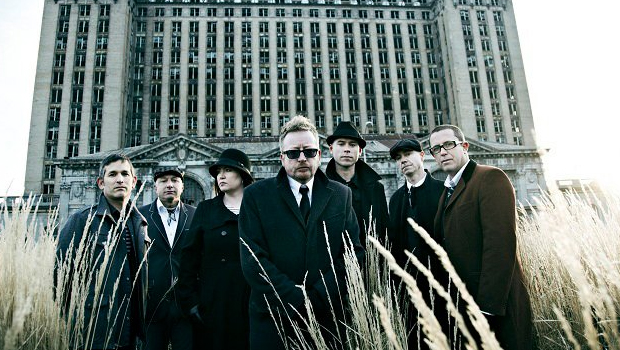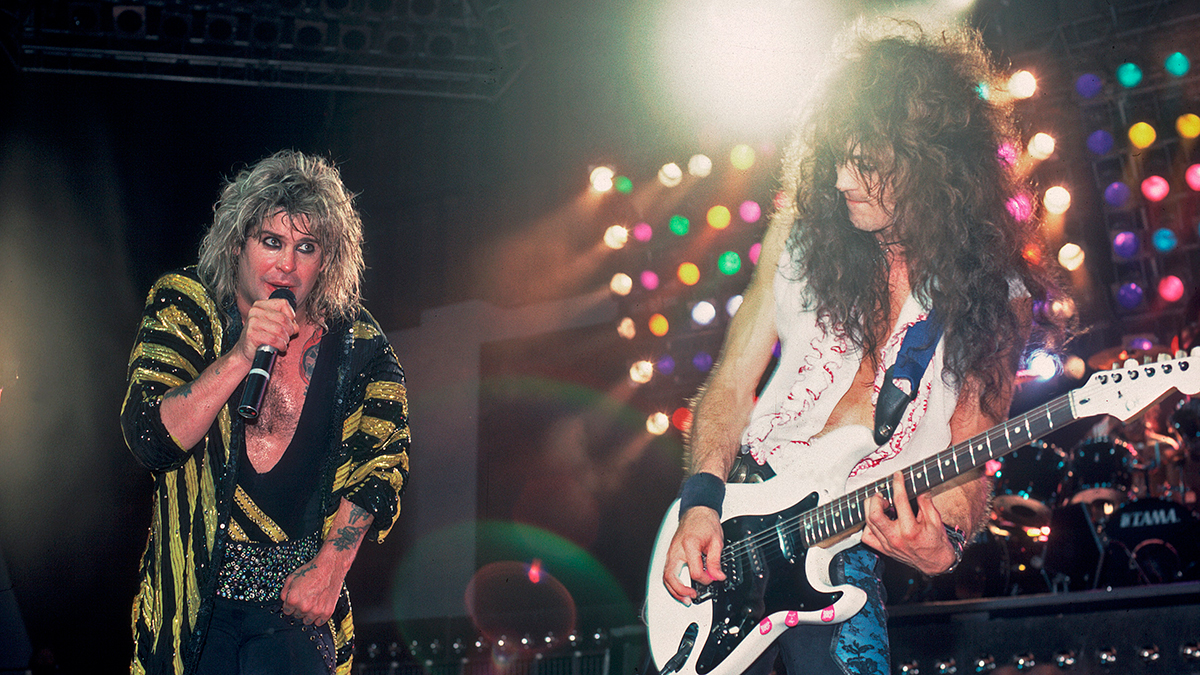
Flogging Molly, alongside their Boston-based counterparts, Dropkick Murphys, took the groundwork laid by early Irish punk bands like the Pogues and Nyah Fearties and found mainstream success with their Celtic-infused rock anthems about drinking and rebellion.
Lately, though, it seems the band have sobered – er, sombered – up a bit, having taken on a more mature tone since 2008’s Float. The band’s new album, Speed of Darkness, is perhaps their most mature release yet, with the album's lead single, "Don't Shut 'Em Down," painting a harrowing tale of economic decline in urban America.
Rest assured, though: This is still Flogging Molly, and you’ll still be pulling this record out for many a St. Patty’s day to come. Gone may be the days of “Drunken Lullabies,” but if there’s a band that can get you to sing along with the apocalypse, it’s Flogging Molly.
GUITAR WORLD: So I know Dave [King, lead singer] is the main songwriter in the band, but how does the songwriting process usually work? Does he come in with fully formed ideas or just a vocal melody and chord progression?
DENNIS CASEY: Each song is different, but for the most part Dave will have a verse and a chorus and then we all just kind of pile in and try different things in different ways. Sometimes someone will play a riff and it will just click with him and then he’ll write a song around that riff or chord progression. He’ll just run with it.
The new album, Speed of Darkness, definitely takes on a darker vibe than some of your older records. Why do you think that is?
One of the big inspirations for the new record was that Dave moved to Detroit with Bridget [Regan, violinist]. I think they moved a few years ago, before the economy started collapsing. Detroit was one of the more affected cities in this harsh economic decline we’re in, and I know Dave was really moved by what he saw there and couldn’t help but write about it.
All the latest guitar news, interviews, lessons, reviews, deals and more, direct to your inbox!
So you recorded the new album at an old church that’s now a studio. What was that like?
The new record we did in Asheville, North Carolina, at a place called Echo Mountain. One of the reasons we went there was that we’re a seven-piece band and we record live, so we need a lot of space to set up and play. The main room of the church is the main recording room, so there was plenty room. There were plenty of little side rooms as well, being a church, for isolation rooms for amps and other instruments. Our producer Ryan Hewitt had worked there before with The Avett Brothers and recommended it.
Talk about your gear set-up on the new album.
I used Satellite amps for most of the album, and I used a bunch of guitars. The studio had a bunch of vintage guitars as well.
The studio had this really cool Marshall; it was an “Offset,” they kept calling it. It was black and white and the logo and the knobs were kind of offset. That thing just sounded really good. There’s only, like, four of them that were made originally, and Eric Clapton has one, so that was really cool. Kind of intimidating, though, because I didn’t want anything bad to happen to it [laughs].
My main guitar is a Fender Telecaster -- a ’93 Tele Plus -- but I’ve done a lot of work to it so it really is my guitar. It’s got a Gretsch FilterTron pickup in the bridge.
Then I ran into Nash guitars and struck up a relationship with them, and they made these two guitars I use now. They’re like Telecasters but with Jazzmaster necks and a FilterTron pickup in the bridge. He does such a great job “relic-ing” guitars.
The band is a seven-piece with a lot of melodic instruments, so you’re not a typical “lead” guitarist. How do you see your role in the band as a guitarist?
That’s a great question because when I first joined [Flogging Molly], I was used to playing in bands like you’re talking about -- four-piece bands where I was the only guitarist. In bands like that, you have so much space to fill and effects you can use without cluttering up the sound. This band, it’s the exact opposite challenge!
The challenge in Flogging Molly is to fit in without stepping all over the other instruments. As you said, they’re all in the same range, they’re all melodic instruments, so I don’t really use anything but an overdrive pedal for the few solos I play. I don’t really use delay or reverb as they’d just get lost because we play pretty fast as well.
I remember when joining thinking there’s not a whole lot of room to fill in, so it’s kind of a less-is-more approach.
And if you’re gonna get a spot, you better make sure those three or four notes count. They’d better be a good three or four notes! [laughs]
-GW
The new album from Flogging Molly, Speed of Darkness, is out now.
Josh Hart is a former web producer and staff writer for Guitar World and Guitar Aficionado magazines (2010–2012). He has since pursued writing fiction under various pseudonyms while exploring the technical underpinnings of journalism, now serving as a senior software engineer for The Seattle Times.

